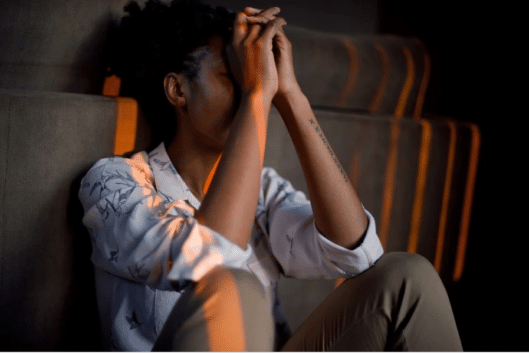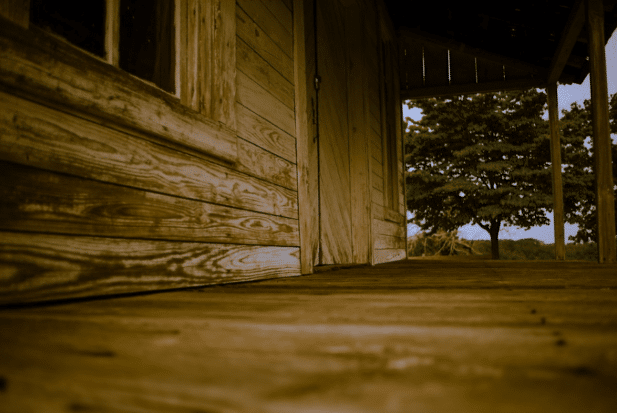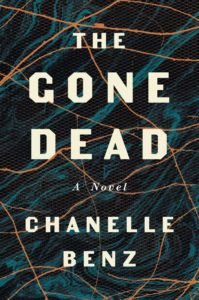The Intentions of the Past
Author: Chanelle Benz
Billie Jean has a lifetime of secrets, and on this sultry Mississippi night, transformed from city girl to a desolate young woman in a falling down shack, she contemplates them and what answers her past and this weird inheritance have for her. Her father, famous black poet Clifton James, mysteriously died in his prime, back in 1972, after returning from the city to his Mississippi roots. Her white mother, James’ much neglected wife, died many years later in a fading battle with cancer. Neither parent left answers for their strange union, for its end, for the sudden flight after James’ death or for the stagnate activism that only shows now in a few of his old poems. Billie herself doesn’t even know she is looking for answers. But here she is, with $5,000, her childhood home (i.e. her father’s shack), and a dog named Rufus in a delta that remembers and yet has no love for her.
Benz begins her narrative with a startling sense of geographic place. The heat soaked days with blooming sweat and the smell of old cars baking in the sun is visceral. Something those of us who grew up in the Deep South (Tennessee for yours truly) remember with half shudder and half fondness – this jungle climate with its oddly calm nights and purgatorial days. We feel set down here, the kudzu growing as Billie’s dog romps through grasses no doubt containing copperheads and cottonmouths and plumes of kamikaze mosquitoes. The long nights of the cicadas chorusing the stillness. The confusion of heat and the surreal slowness of life.
 What stands out as strange against this almost loving sense of place is the starkness of the characters. They never come alive, moving like ghosts against a world that is vivid and green. Billie is rudderless, directionless, and that’s the point. But we, as readers, need something of her to moor ourselves to. We need to care. To feel what losing her father did. To wonder what it is she saw that night when she was four years old. To feel the earth move beneath her feet as the secrets, ugly and cancerous, unwind. To feel from her love or hate of her father – perhaps some reaction to how he treated her mother. Something. Without this, her movements and her forcing of the puzzle pieces, her continual seeking, seem more like a plot device than a haunted human with whom we can empathize and connect.
What stands out as strange against this almost loving sense of place is the starkness of the characters. They never come alive, moving like ghosts against a world that is vivid and green. Billie is rudderless, directionless, and that’s the point. But we, as readers, need something of her to moor ourselves to. We need to care. To feel what losing her father did. To wonder what it is she saw that night when she was four years old. To feel the earth move beneath her feet as the secrets, ugly and cancerous, unwind. To feel from her love or hate of her father – perhaps some reaction to how he treated her mother. Something. Without this, her movements and her forcing of the puzzle pieces, her continual seeking, seem more like a plot device than a haunted human with whom we can empathize and connect.
Other characters soon appear. There is a selfish biographer of Clifton James who is more interested in his dubious scholarly renowned than what his revelations do to the family. And then there is Uncle Dee, who knows something but isn’t telling. The nearby white landowners, weird in their friendliness with Billie and her family who, way back when, were slaves to the land. Billie’s white boyfriend who is meant to have his own sort of dilemma yet doesn’t – he merely acts as expected. Indeed, this is the problem with all of these characters. They act and move as expected, symbols of something greater than themselves, an old and throbbing hurt, but not actually emotional in and of themselves. They stand for something, and as such are ghosts that fail to get the full impact of their message across.
 And so these ghost people move and interact, often without logic. Billie, aware that she is stirring up town resentment and even the KKK, takes her dog for walks in isolated places. She continues to live and do her research in a faraway shack, known to all the good ‘ole boys, without a phone. She never approaches the destruction of this town’s heinous backstory in a self-protective way, which simply doesn’t fit with her nearly emotionless maneuvers. Why not do all this from safety? Why not suss out these secrets and spill them in a manner that guarantees revenge, justice, and the protection of her own life? Like so many horror movies, Billie chooses the greatest, riskiest way and divorces readers from the realism of the narrative. A real person with Billie’s intelligence and determination would go about this in a much better, less cavalier way.
And so these ghost people move and interact, often without logic. Billie, aware that she is stirring up town resentment and even the KKK, takes her dog for walks in isolated places. She continues to live and do her research in a faraway shack, known to all the good ‘ole boys, without a phone. She never approaches the destruction of this town’s heinous backstory in a self-protective way, which simply doesn’t fit with her nearly emotionless maneuvers. Why not do all this from safety? Why not suss out these secrets and spill them in a manner that guarantees revenge, justice, and the protection of her own life? Like so many horror movies, Billie chooses the greatest, riskiest way and divorces readers from the realism of the narrative. A real person with Billie’s intelligence and determination would go about this in a much better, less cavalier way.
In the end, at least, we sort of get an answer although the details are still fuzzy, the players all painted as though they are emotional when in reality they seem to feel nothing, good or bad (and this includes Uncle Dee). Billie even gets her confrontation – way too easily I might add. The resolution the novel wants to end with, the calling the bad guys to atonement, feels just as forced as the oddly stilted, colloquial writing, and we feel that nothing is resolved. This muddy backwater continues to fester in its own evil and Billie herself, has she healed? Not really. Has she found a meaning and a purpose, a demon to destroy? Not really. Has the confrontation left her with any of the answers? No. The obvious point of the narrative is that society has a far way to go, and it takes the individuals to fight the good fight and start to get us there, dismantling one injustice at a time. While this moral holds true and strong though, the delivery of the story and the characters hardly supports it. In the end we walk away with a cloying sense of heat and a shadowy recollection that people must have moved through it.
– Frances Carden
Follow my reviews on Twitter at: https://twitter.com/xombie_mistress
Follow my reviews on Facebook at: https://www.facebook.com/FrancesReviews
[AMAZONPRODUCTS asin=”0062490737″]
- Book Vs Movie: The Shining - April 6, 2020
- Thankful For Great Cozy Mysteries - December 13, 2019
- Cozy Mysteries for a Perfect Fall - October 20, 2019



